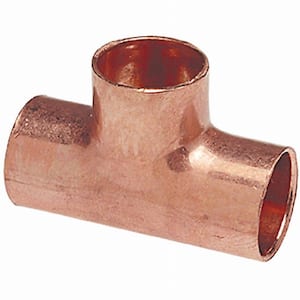Checking Out the Diverse Applications of Copper Products in Modern Industries
From enhancing the performance of electric systems to playing a vital duty in renewable energy innovations, the flexibility of copper is obvious. As industries significantly focus on innovation and sustainability, the diverse applications of copper necessitate a closer evaluation, specifically concerning their prospective influence on future environmental techniques and technological innovations.
Electric Applications of Copper
Copper is an essential material in the electrical industry, making up approximately 60% of the overall need for non-ferrous metals globally - Copper Products. Its superior electrical conductivity, which is nearly two times that of light weight aluminum, makes it the recommended option for a broad array of electrical applications. From circuitry systems in industrial and property buildings to high-voltage power transmission lines, copper guarantees efficiency and dependability in electrical energy distribution
Along with wiring, copper is integral to the manufacturing of electric elements such as electric motors, generators, and transformers. These parts utilize copper's thermal conductivity and malleability, crucial for heat dissipation and effective efficiency. Furthermore, copper's resistance to deterioration improves the lifespan and resilience of electrical systems, making it a cost-efficient option in the long-term.
The development of renewable resource sources, such as solar and wind power, has actually additionally boosted the need for copper in electrical applications. As industries change towards lasting energy services, copper's duty becomes much more essential. In general, the flexibility and efficiency attributes of copper solidify its condition as a keystone material within the electric market, driving development and efficiency across various applications.
Pipes and Piping Solutions
In modern-day plumbing systems, the choice of products dramatically influences both capability and longevity. Copper has arised as a recommended alternative because of its one-of-a-kind buildings, including rust resistance and antimicrobial features. These features make sure that copper piping continues to be resilient and safe for transferring potable water, a crucial factor to consider in domestic and industrial applications.
Among the crucial advantages of copper in pipes is its capability to withstand heats and pressures, making it ideal for a selection of applications, from warm water systems to heating and cooling down networks. Additionally, copper's versatility permits simpler installation in intricate piping formats, minimizing the danger of failures and leaks.
One more noteworthy advantage is copper's lengthy lifespan, usually going beyond half a century with correct maintenance. This longevity not only reduces substitute costs but likewise adds to lasting methods by lowering waste. Copper's recyclability aligns with contemporary environmental standards, advertising a circular economic climate within the pipes market.
Copper in Renewable Energy
The adaptability of copper prolongs past plumbing applications, playing a crucial duty in the eco-friendly energy field. In solar panels, copper is made use of in photovoltaic cells and circuitry, facilitating reliable energy conversion and transmission.

Furthermore, as the global demand for electric automobiles (EVs) rises, copper's function in battery systems and charging framework ends up being a lot more substantial. The material's capability to perform electrical energy efficiently is important to the performance of EV batteries, improving array and charging speed.
Copper's Function in Electronics
Electronics producing relies greatly on copper's remarkable residential properties, especially its high electric conductivity and thermal efficiency. These qualities make copper a suitable selection for a wide variety of digital elements, consisting of ports, motherboard, and electrical wiring. The metal's ability to efficiently transfer electrical signals makes sure very little power loss, which is important in high-performance electronic devices.
Additionally, copper's thermal conductivity plays a substantial role in warmth dissipation, shielding sensitive components from overheating. This is specifically essential in modern-day electronic devices, where compact designs cause raised heat generation. Copper is additionally preferred for its pliability and ductility, enabling it to be quickly formed into detailed designs that fulfill the needs of advanced digital applications.
With the rise of customer electronic devices, telecoms, and electrical vehicles, the demand for copper in the electronics industry proceeds to grow. Hence, copper continues to be a cornerstone product in the ever-expanding field of electronics.
Cutting-edge Uses in Manufacturing

One notable application is in additive production, where copper-based products are used discover this info here in 3D printing procedures. This permits for the production of light-weight parts and complex geometries, particularly in the aerospace and automobile markets. In addition, copper's thermal conductivity makes it a suitable choice for heat exchangers, boosting performance in commercial cooling systems.
Moreover, the surge of clever manufacturing has seen the consolidation of copper in IoT devices, where its conductive capacities sustain innovative picking up innovations. In the world of eco-friendly power, copper is critical in the manufacturing of solar panels and wind generators, facilitating extra reliable power conversion and distribution.
As markets pursue sustainability and innovation, copper's adaptability and efficiency proceed to place it as a vital material, driving advancements in production and adding to the development of smarter, more effective products.
Verdict
The important role of copper in eco-friendly power and its necessary function in electronic devices highlight its significance in progressing sustainable methods. Jointly, these applications show find more info copper's vital contribution to technological progress and industrial effectiveness in modern culture.
From enhancing the effectiveness of electric systems to playing an important duty in renewable power technologies, the flexibility of copper is noticeable. As markets progressively prioritize technology and sustainability, the diverse applications of copper necessitate a closer evaluation, particularly concerning their prospective effect on future technical developments and ecological methods.
The growth of sustainable power resources, such as solar and wind power, has even more boosted the demand for copper in electric applications. On the whole, the adaptability and efficiency attributes of copper strengthen its condition as a keystone product within the electric industry, driving innovation and performance across numerous applications.
The convenience of copper extends past pipes applications, playing an important role in the sustainable power sector.